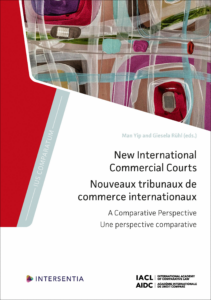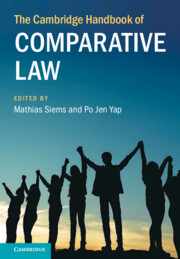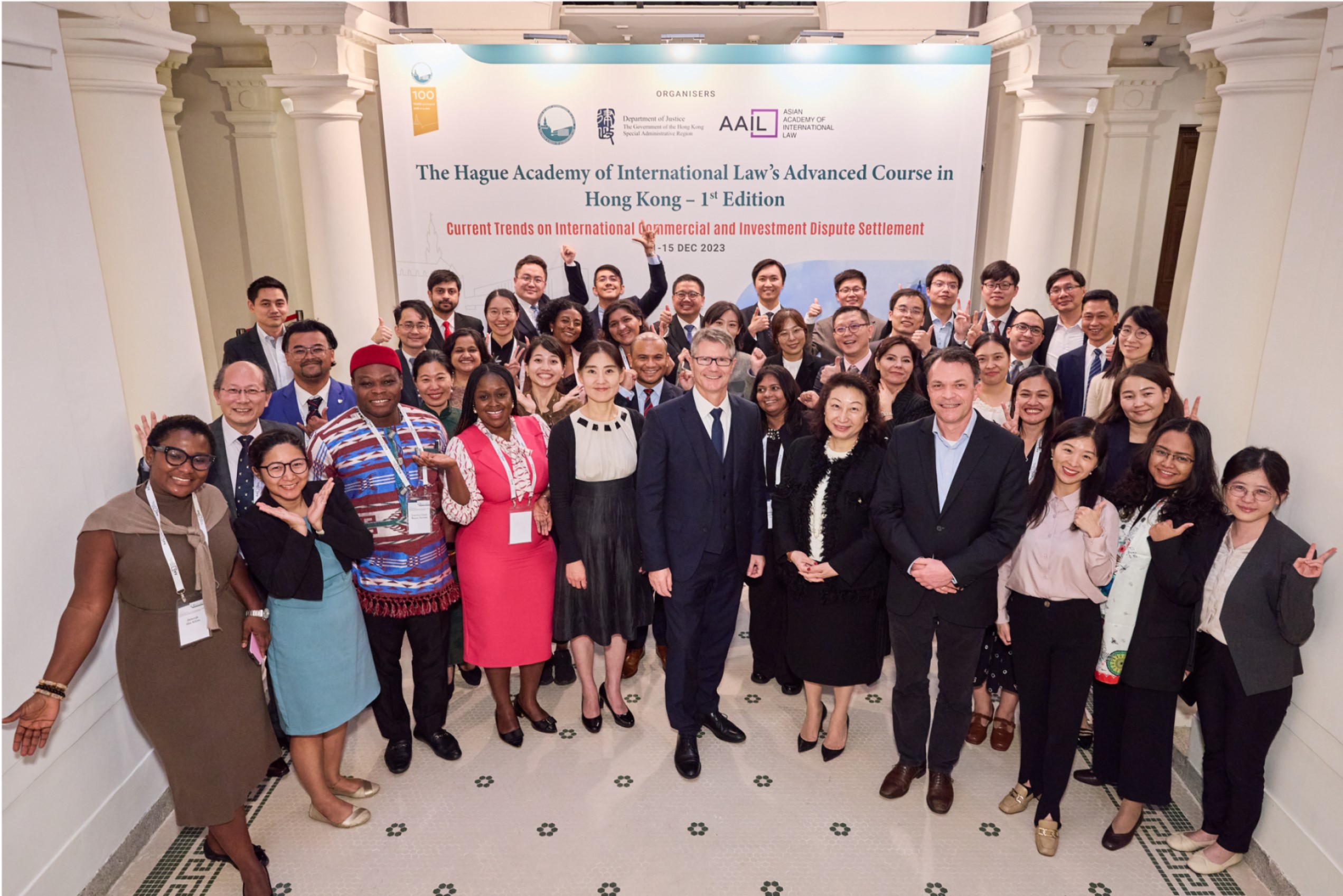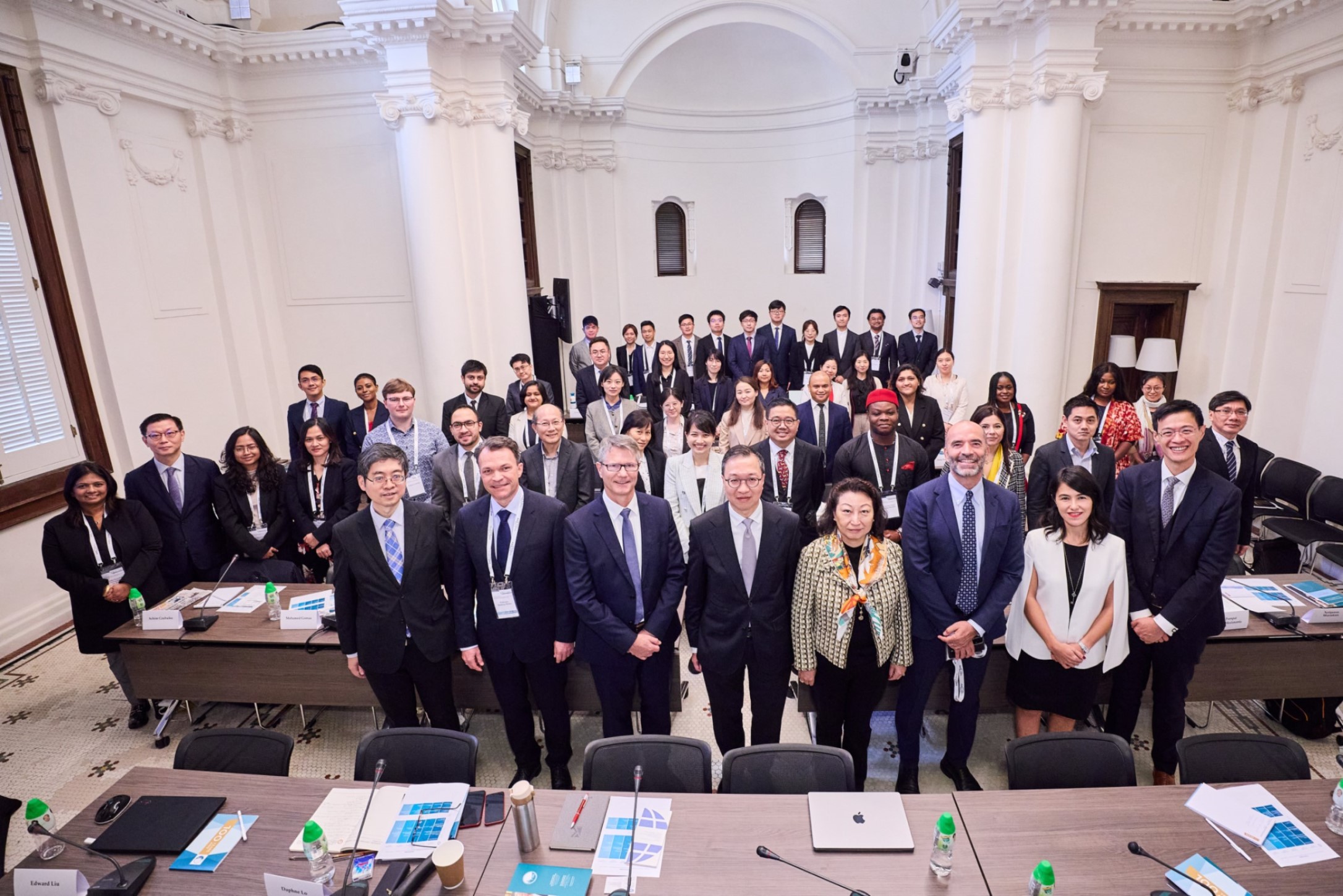From Theory to Practice in Private International Law: Gedächtnisschrift for Professor Jonathan Fitchen
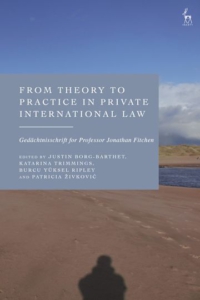 Written by Justin Borg-Barthet, Katarina Trimmings, Burcu Yüksel Ripley and Patricia Živkovic
Written by Justin Borg-Barthet, Katarina Trimmings, Burcu Yüksel Ripley and Patricia Živkovic
Note: This post is also available via the blog of the European Association of Private International Law.
When our colleague and friend Prof Jonathan Fitchen passed away on 22nd January 2021, we were comforted in our grief by an outpouring of messages of condolence from private international lawyers around the world. We had known, of course, of the impact and importance of Jonathan’s work to the world of private international law scholarship. His monograph on authentic instruments, for example, will remain an essential reference on that subject for many years to come. Jonathan’s impact on the world of private international law scholars was, to a degree, less obvious. He was an unassuming man. He did not seek to command the attention of every gathering he attended, and he might have been surprised to realise how often he did just that. He was tremendously well-liked and well-respected for his wit, his self-deprecating sense of humour, and his empathy.
This book seeks to capture in it some of the immense esteem in which Jonathan was held. That much will of course be of interest to the many scholars and practitioners who had the privilege of Jonathan’s acquaintance. The intellectual generosity of the contributing authors will ensure, however, that this volume will also be of great value to those who encounter Jonathan for the first time in these pages. Taken together, the chapters in this book address the major conceptual and practical challenges of our time: from stubborn definitional dilemmas, such as the deployment of key terms in international child abduction cases, to contemporary concerns about disruptive technologies like cryptocurrencies, to core conceptual challenges regarding the unintended consequences of our discipline’s professed neutrality.
The collection is divided into three main parts. Following a preface in which Prof Xandra Kramer paints a vivid picture of Jonathan’s humanity, humour and wit, and an introduction by ourselves as the editors, Part I includes four chapters which address conceptual matters relating to the nature and scope of private international law. Part II is made up of seven chapters concerning civil and commercial matters in private international law. Part III includes two chapters on family matters in private international law.
Part I: The Evolving Nature and Scope of Private International Law
The first substantive chapter is a tour de force by Alex Mills in which he explores the unsettled relationship between private international law and legal pluralism. Mills observes that private international law is both a product and producer of pluralism, in addition to being internally pluralist in its self-conception. Mills’ analysis will be of great interest to readers seeking to discern private international law’s place in the taxonomy of the study of law, whether they are observing that taxonomy from the perspective of a comparatist, a conflicts scholar, or a public international lawyer.
The following chapter also engages with the problem of pluralism in private international law. Thalia Kruger focuses specifically on mediated settlements with a view to illuminating their meaning for the purposes of transnational law. Kruger does a wonderful job of building on Jonathan Fitchen’s work by providing technical and normative analysis of the public faith to be accorded to private agreements. Ultimately, she welcomes a movement towards the upholding of settlement agreements but cautions against potential abuse of vulnerable parties.
The problem of vulnerability is the central focus of the next chapter, by Lorna Gillies. Gillies provides robust, systematic analysis of the theory and practice of our discipline’s treatment of vulnerable parties. This is, of course, one of the central problems in a discipline whose professed neutrality is capable of furthering and entrenching inequalities. Gillies argues persuasively that the application of Fredman’s four pillars of asymmetrical substantive equality would equip private international law better to address inherent risks of vulnerability.
Asymmetries of private power remain the focus of discussion in the following chapter on the under-explored relationship between our discipline and feminist scholarship, authored by two of the editors. Justin Borg-Barthet and Katarina Trimmings set out to contribute to a nascent discussion about sex-based vulnerability and how this is (un)seen by much of the literature and law. It is argued, ultimately, that private international law requires more sustained engagement with feminist scholarship if it is to avoid acting as an instrument for the entrenchment of substantive inequalities.
Part II: Civil and Commercial Matters in Private International Law
Unsurprisingly, given the focus of much of Jonathan Fitchen’s written work, Part II on civil and commercial matters makes up around half of the volume. It begins with Andrew Dickinson’s meticulous analysis of the meaning of “damage” in EU private international law. Dickinson notes that, despite the central importance of the term to the operation of much of EU private international law, there is little clarity as to its meaning. His chapter sets out to remedy this shortcoming through the articulation of a hitherto undeveloped taxonomy of “damage” which promises to become an essential tool in the arsenal of students, teachers, practitioners, and adjudicators of private international law.
Another editor, Burcu Yüksel Ripley, authored the next chapter, which addresses cryptocurrencies. Our discipline’s continued preoccupation with definitional clarity remains very much in evidence in this discussion of challenges posed by disruptive technologies. Yüksel Ripley notes that attempts to characterise cryptocurrencies as a thing/property are unsatisfactory in principle, and that they therefore lead to conceptually unsound outcomes. She proposes instead that analogies with electronic fund transfers provide more promise for the determination of the applicable law.
In the next chapter, by Laura Carballo Piñeiro, the volume returns to another major theme of Jonathan Fitchen’s scholarly output, namely the effectiveness of collective redress mechanisms. Carballo Piñeiro observes that access to justice remains restricted in most jurisdictions, and that a common EU approach remains lacking. Although the courts have provided some routes to collective redress, Carballo Piñeiro argues that a robust legislative response is paramount if corporate accountability for environmental harm is to be realised in Europe.
Private international law’s ability to engage with concerns regarding environmental sustainability remains a key focus of analysis in Carmen Otero García-Castrillón’s chapter concerning the discipline’s place in international trade agreements. The chapter advocates the bridging of an artificial systemic separation between the private and the public in the international system. It is argued that the extent of private power in the international system merits attention in trade agreements if sustainable development goals are to be attained.
Giesela Rühl also addresses concerns regarding private international law’s ability to be deployed in matters which are traditionally reserved to public and public international law. Her chapter considers innovations introduced through the German Supply Chain Due Diligence Act (Lieferkettensorg-faltspflichtengesetz – LkSG) which establishes mandatory human rights due diligence obligations in German companies’ international supply chains. Rühl laments the lack of attention paid to private international law in German law. She makes an especially compelling case for any future EU interventions to recognise the need to engage with private international law if legislation is to be effective.
The uneasy public-private divide in transnational law remains in evidence in Patricia Živkovi?’s chapter concerning what she describes as “creeping substantive review” in international arbitration. Živkovi? decries a lack of conceptual clarity in courts’ treatment of arbitral determinations, particularly insofar as public policy is deployed as an instrument of substantive review of private adjudication. She argues that international legislative intervention is needed if prevailing inconsistencies of treatment are to be resolved.
Fittingly, Part II is rounded off with a discussion of that part of private international law to which Jonathan Fitchen made his most enduring scholarly contribution, namely authentic instruments. Zheng Tang and Xu Huang discuss authentic instruments in Chinese private international law. Like Jonathan’s work, this chapter provides readers of English language scholarship with a rare example of in-depth analysis of concepts which are unfamiliar in the Anglo-American tradition. The chapter’s compelling arguments for legal refinements will also be of use, however, to readers who wish to identify possible improvements to Chinese law.
Part III: Family Matters in Private International Law
The final part of the book turns to family law, an area in which Jonathan provided ample instruction to students, but which was not especially in evidence in his written work. In keeping with the previous parts of the book, our discipline’s need for definitional clarity and consistency are very much apparent in the chapters in this part, as is the somewhat existential concern regarding the proper delineation of the public and the private. As the authors in this part observe, each of these matters has far-reaching effects on the apportioning of rights and obligations in circumstances which are deeply meaningful to the lives of litigants.
Aude Fiorini’s chapter considers flawed reasoning in the US Court of Appeals judgment in Pope v Lunday. Fiorini illustrates the substantive flaws in the Court’s treatment of the habitual residence of neonates, but also highlights a broader concern regarding the potential for unconscious bias in judicial decision-making. Through the judgment in Pope, Fiorini raises alarms regarding inconsistent judicial treatment of similar situations which turn on appreciation of circumstances establishing the habitual residence of a child. She argues, particularly compellingly in our view, that the interests of justice require greater conceptual clarity and consistency.
In the final chapter, by Anatol Dutta, the interactions of the public and the private return to the fore. Taking his cue from Jonathan Fitchen’s work on authentic instruments, Dutta explores the concept of private divorce under the Brussels IIter Regulation. Concerns regarding decisional autonomy are very much in evidence in this chapter, which considers the meaning of private divorces and the extent to which they enjoy recognition in the EU private international law system. Ultimately, Dutta welcomes measures which restrict private divorce tourism in the EU.
Conclusions
This book was born of a collective wish to remember and honour a much-loved scholar of private international law. In that, we trust that it has already fulfilled its purpose. However, each chapter individually and the book taken as a whole also capture the state of the art of private international law. Ours remains a discipline in search of systemic normative clarity and in episodic need of technical refinement. This collection provides tantalising glimpses of possible answers to both the essential question of the treatment of the private in the attainment of public goods, and in relation to longstanding vexing technical questions.
To preserve and further Jonathan Fitchen’s legacy as an educator of private international lawyers, editorial royalties from the sale of the book will be donated to the Jonathan Fitchen Fund of the Development Trust at the University of Aberdeen. Direct individual donations to the fund are also welcome and appreciated.
